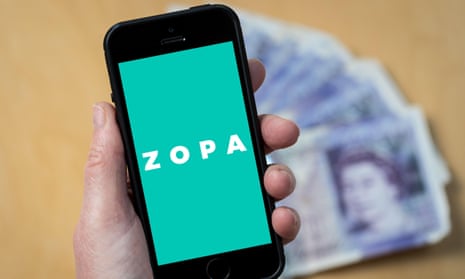It once hoped to make banks a thing of the past by cutting them out of the equation, but now Zopa is shutting down its “peer-to-peer” (P2P) lending arm after 16 years – so it can concentrate on being a bank.
The company has contacted its 60,000 existing P2P investors to let them know that it will be handing them back their money – leaving them to find a new home for their cash at a time of ultra-low savings rates.
P2P platforms bypass the banks by linking savers looking for a better return with individuals or small businesses looking for loans.
Until recently, billions of pounds were tied up with Zopa and its competitors. However, the coronavirus crisis and increased scrutiny from regulators such as the Financial Conduct Authority – which has dubbed P2P a “high-risk investment” – have caused huge turmoil for the industry and led to some players quitting the market.
When it launched in 2005, Zopa (it stands for “zone of possible agreement”) was hailed as a radical online financial “exchange” allowing millions of ordinary people to borrow from and lend money to each other. Its aim was to leave “faceless corporations” out in the cold, claiming it could offer consumers better rates of interest than they could get from banks.
But in recent years, with some of the shine coming off the P2P sector after the collapse of some smaller players, Zopa has adapted its business model to embrace what it initially stood against. It was granted a full UK banking licence in June 2020 and now offers products such as credit cards, personal loans, fixed-rate savings accounts and car finance.
Zopa is closing the P2P side of the business with immediate effect and will be buying its investors’ loans at their current face value, without any of the fees that they would normally incur for a loan sale. This means they will receive back the money they have invested with the site, plus any interest that borrowers have paid up to the date of sale. Everyone should get their money back by 31 January 2022.
All of the loans are being bought at face value, including those currently in arrears.
There will be no impact on borrowers as Zopa’s banking arm already services them.
The company told customers: “Sadly, over the last few years, customer trust in P2P investing has been damaged by a small number of businesses whose approach led to material losses for customers investing in those platforms. Linked to this, the changing regulation in the sector has made it challenging to grow and remain commercially viable.”
For some investors, Zopa has been a key part of their portfolio. The company says that since launch, the average return has been 5%, and that even during the pandemic it was able to deliver an average of 3.9%. That compares with the 1.37% to 1.75% it was this week offering those who put their cash into its fixed-rate savings accounts, which involve tying up your money for between one and five years.
Those who want to stick with peer-to-peer will find that there are limited options. RateSetter, formerly the UK’s biggest P2P site, shut down the investment side of its business in April, while the other former big player, Funding Circle, now concentrates on small business loans.
However, there are still a number of platforms open for business. One of the better-known players is Lending Works, which was this week saying people could earn projected returns of up to 4.5%. Some P2P sites – in many cases ones that most people will not have heard of – are offering up to 12%. These include the P2P property loans platform Blend.
